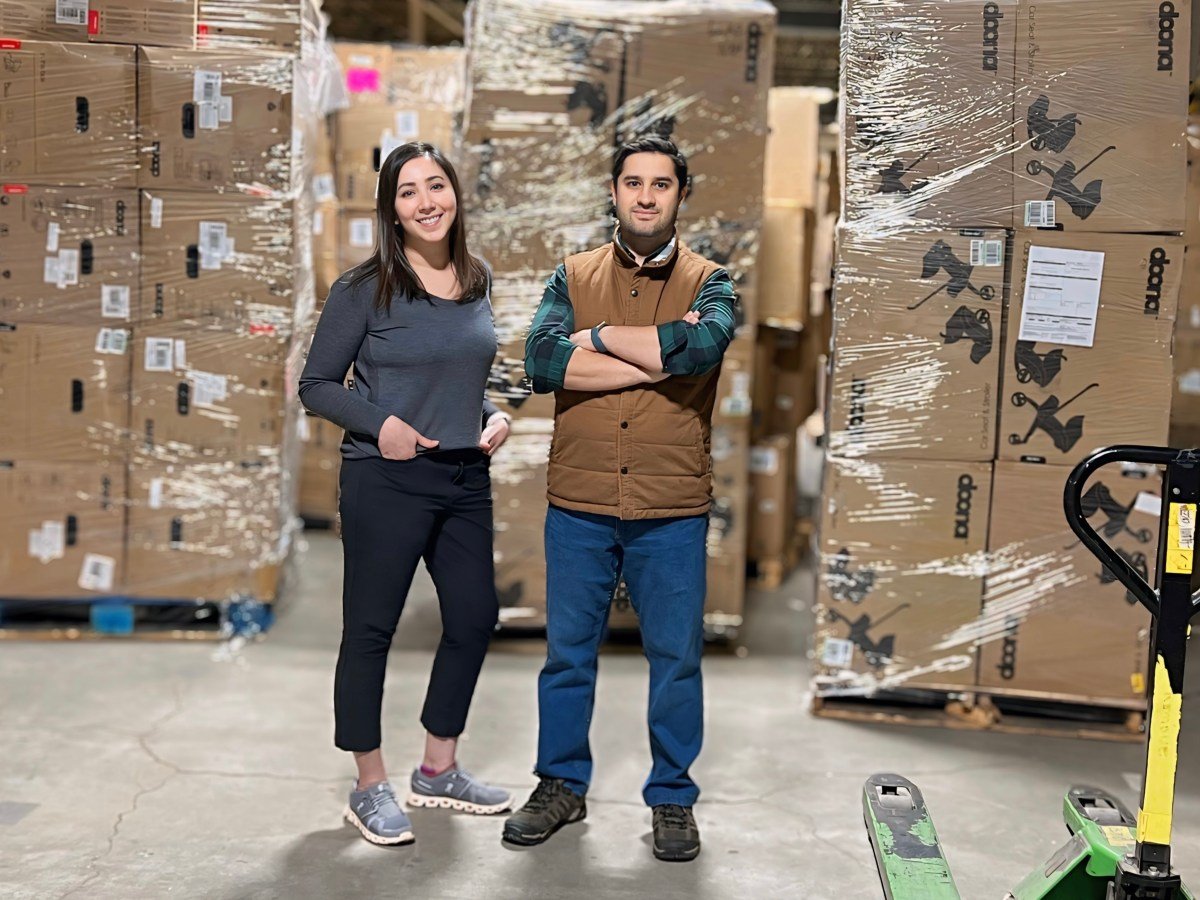Raising children is no easy task, and it’s only getting more expensive. As they quickly outgrow clothes and toys, parents are stuck in a never-ending cycle of buying new items that are barely used. But fear not, Kidsy has a solution.
Kidsy, a new e-commerce startup based in Chicago, is revolutionizing how families access discounted baby and kids’ products. By partnering with major brands, retailers, and liquidation companies, Kidsy offers consumers greater affordability while also addressing environmental concerns.
“Almost all the big retailers such as Amazon, Macy’s, Target, Kohl’s, Walmart, Bloomingdales don’t restock customer returns because it is too capital and labor intensive for them to do so,” explains Shraysi Tandon, CEO of Kidsy. “These items are then usually shipped to other countries who buy liquidated American merchandise, or they are destroyed in landfills.”
Kidsy doesn’t just focus on clothing. From strollers to car seats, toys to travel gear, and even nursery furniture, the company offers new and open-box items (also known as new but returned) to meet a variety of needs for parents and their little ones.
The brains behind Kidsy are Indian-born former business journalist, Shraysi Tandon, and Turkish-born software engineer, Sinan Sari. The pair previously co-founded SaaS startup Cuboh, which was acquired by competitor ChowNow. In April of 2022, they teamed up to launch Kidsy. The company has recently closed a $1 million pre-seed funding round, led by New York-based Impellent Ventures.
Investors were drawn to the company’s early success. Since emerging from its beta phase in September of 2023, Kidsy managed to hit $1 million in annualized revenue by January – just four months later.
Hustle Fund, Everywhere VC, The Fund Midwest, and Responsibly Ventures also participated in the funding round, along with angel investors including Jenny Fleiss, co-founder of Rent the Runway, and DraftKings founder and CEO Jason Robins.
Other notable investors included Mike Salguero, founder of Butcherbox, Reilly Brennan, managing partner at Trucks VC, and Sanuk Tandon, co-founder of Kalibrr. The round also included “a combination of film financiers” and high net worth individuals such as Mark and Jane Wilf, owners of the Minnesota Vikings, and Christina Weiss Lurie, co-owner of the Philadelphia Eagles.
The Massive Market for Kids’ Clothing
Tandon’s story of founding Kidsy began with her own media production company and three years spent directing an award-winning documentary about child labor in global supply chains. Through her work, she discovered the excess inventory and supply chain issues that retailers face. She also learned that the liquidation and returns industry in the US is worth a staggering $761 billion annually.
However, it was during her first pregnancy that Tandon noticed the gap in the market for discounted baby products. As a “smart” consumer, she chose to shop for liquidated items instead of paying full price. This sparked the idea for Kidsy, and she launched the company while still expecting.
As a pregnant founder, Tandon initially felt nervous about fundraising. She was constantly reminded of the challenges female founders face and the “boys club” mentality that exists in the VC world. But she refused to let these statistics define her and chose not to disclose her pregnancy during the process.
“When she started fundraising as an expecting mother, Tandon said she was “nervous constantly reading statistics related to how difficult it was for female founders, the dominant ‘boys club’ that existed within the VC world and also how much harder it is in general for companies raising in 2024 compared to just two years prior.”
However, she now regrets hiding her pregnancy and is upfront with potential investors. “VCs who think that’s a problem,” she says, “aren’t the right investors for me.”
Investors were eager to support Kidsy’s mission to be the “TJ Maxx for kids.” Tandon notes that TJ Maxx has outperformed the S&P 500 for the past five years, and the market for secondhand baby and kids’ products is expected to reach $12.8 billion by 2030.
At Kidsy, items are shipped directly to the company’s warehouse in Nebraska, where they are inspected and graded before being sold. The majority of products are brand new and unused, but about 10% are gently used and also available for purchase.
With tens of thousands of customers already, Kidsy is seeing great success. The company receives a commission on every item sold, with an average take rate of 35%. Tandon is aware of the competition in the market, but investors like David Brown, managing partner of Impellent Ventures, recognize the potential of Kidsy’s unique approach.
“Kidsy is solving several very real pain points for parents and breathing innovation into a staid marketplace,” Brown says. “Yes, the offering is cheaper than others and has benefits for the environment, but it’s how they are leaning in to the parents’ evolving needs that has, and will continue to, set Kidsy apart.”
Looking Toward the Future
Kidsy plans to use its new capital for growth and expansion. This includes hiring to expand its current team of 12 and forming partnerships with new brands. The company also plans to incorporate artificial intelligence and machine learning to increase operational efficiencies.
While Kidsy is currently focused on the US market, Tandon believes its model could work in any country with lenient retail returns policies and struggling brands dealing with oversupply. By creating a platform for discounted kids’ products, Kidsy not only benefits families and the environment but also addresses a crucial gap in the market.








